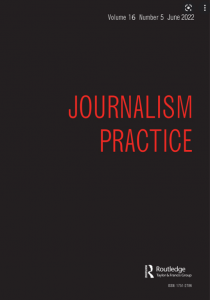
Article The Intertwining of the Covid-19 Pandemic with Democracy Backlash: Making Sense of Journalism in Crisis
Mojca Pajnik and Majda Hrženjak published the article entitled The Intertwining of the Covid-19 Pandemic with Democracy Backlash: Making Sense of Journalism in Crisis in Journalism Practice.
Abstract
This article explores how the combination of the public health crisis and the authoritarian government of Janez Janša’s Slovenian Democratic Party, along with its tendency to politically instrumentalize and economically devastate the media, impacted journalism during the Covid-19 pandemic. Of central concern are how journalists understand their roles in communication relating to Covid-19 and how these roles are shaped when the pandemic and trends towards democratic backsliding coincide in time. The analysis is conducted in the theoretical frameworks of crisis communication, authoritarian influences on the media, and journalistic roles, while methodologically it is based on individual interviews in which journalists reflect on their professionalism amidst the pandemic and rising authoritarian control over media. The findings show that the facilitative role revealed in existing research of media functioning during a public health crisis may be interwoven with a watchdog role challenged by authoritarian tendencies. Indeed, interviews suggested the coexistence of general journalistic roles at a time of dual crisis, when the sense of responsibility to facilitate measures to confine the spread of the disease is coupled with critical monitoring, (self)reflection, and attempts to restore professional standards in both public and private media.
